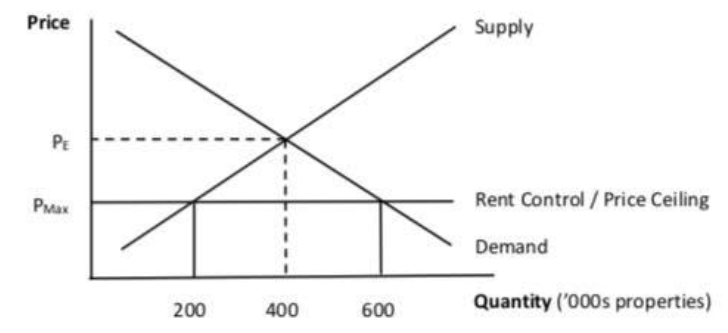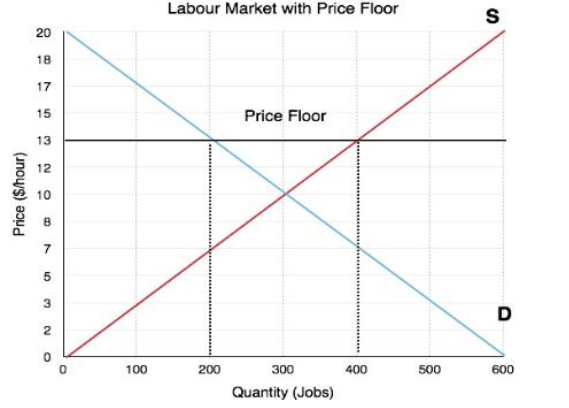2.4 government intervention in the market
1/22
There's no tags or description
Looks like no tags are added yet.
Name | Mastery | Learn | Test | Matching | Spaced |
|---|
No study sessions yet.
23 Terms
Price ceiling
The mandated maximum amount a seller is allowed to charge for a product
Set bellow equilibrium

Price floor
The mandated minimum amount a seller is allowed to sell a product for
Set above equilibrium

Fiscal policy
Policies which effect government expenditure and government revenue
Balanced regional development
efforts to enhance wellbeing and living standards in all region types and improve their contribution to national performance
Regulation
The controlling of an activity by means of rules
Nationalisation
Taking an industry into public ownership
Privatisation
When the government sells a state owned business to the private sector
Subsidy
financial aid given by the government to individuals and firms in order to encourage a certain behaviour or to reduce the cost of production/increase efficiency
LATER
Legislation
Awarness
Taxation
Expenditure
Regulation
Economic aims of the government
Full employment
Manage debt
Care for the environment
Regional development
Control inflation
Ways the government can achive balanced regional development
tax insentives
Improve infastructure
Training facilities
Provide venture capital for start ups
Government intervention
when the state gets involved in markets and takes action to correct market failure and so improve economic efficiency
Why regulation is important
Protect public welfare
Ensure workplace saftey
Maintain profesion conduct (e.g. code of conduct for teachers)
Advantages of regulation
Improved health and saftey
Protect Consumers from exploitation
Protect the enviornment
Arguments for privatisation
Government revenue
Efficiency
Increased competition - new firms entering the industry
Arguments for nationalisation
Provision of Essential Services
Stability of jobs
Long term planing
Profits reinvested into communities
Advantages of intervention
Attracts FDI
Regulates monopolies and prevent them
Provide employment (e.g. public sector)
Provide essential services
Reasons for unbalanced regional development
Lack of employment opportunites
Low wages
Lack of services
Lack of 3rd level institutions
Benifits of balanced regional development
Creates employment
Reduces emigration
Less rural/urban devide
Disadvantages of intervention
Reduces enterpreneurship
Increases bureaucracy
Inefficient
Arguments against privatisation
Increased unemployment
Lack of social commitments
semi-state bodies may be loss making
Disadvantages of regulation
Impedes profitability
Net cost on society (adds to cost of doing business)
Arguments against Nationalisation
Inefficient
Opportunity cost
Discourage investing in the Irish economy